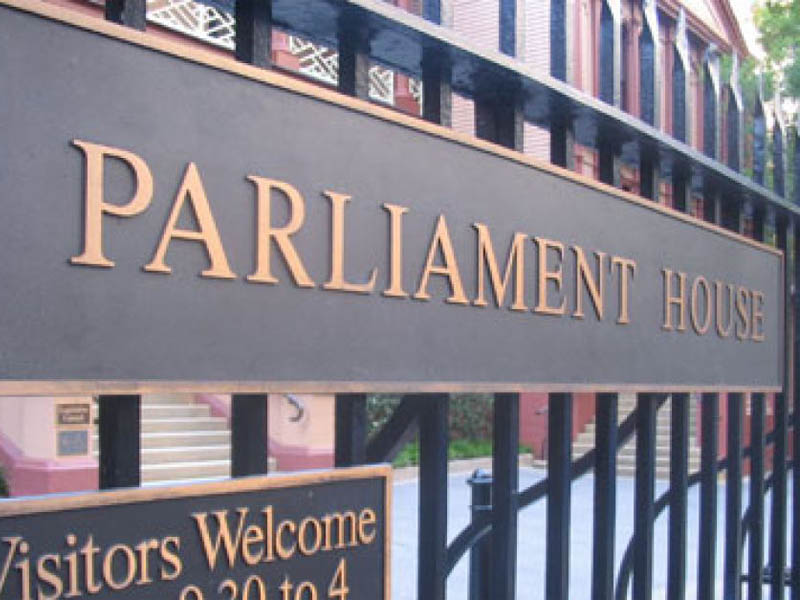The NSW Government talks a big game about a commitment to “radical transparency” in relation to technology procurement, but its actions tell a different story. The state may be a front-runner among its government peers in building the infrastructure of digital delivery, but there is something off about the way it now buys tech.
The latest MoU with Microsoft – the second such arrangement signed by NSW in less than eight months – gives the Seattle tech giant preferential access to the most senior levels of bureaucrats.
The MoU is a massive coup for Microsoft. It included a ringing endorsement of the company printed on official government letterhead from one of the state’s most senior bureaucrats, Finance secretary Martin Hoffman, together with a commitment to greater level of collaboration with the company.

The government also committed to bring state government department heads into the Microsoft offices in Martin Place for technology demonstrations.
It is easy to see why this is good for Microsoft. It formalises preferential access to the state’s most senior Mandarins. This is especially valuable because the NSW government has built some global credibility in public sector digital, making it very referenceable. And to have the Finance secretary tooting your horn via official communications also has great value.
But why does the NSW Government need to sign an MoU with a company in order to make it easier for that company to sell it products and services?
And can you imagine in a lifetime of Sundays the government cheerleading a smaller, Australian company with such enthusiasm?
Could you imagine the NSW government signing up to an arrangement that gives a smaller Australian tech company preferential access to senior public servants? Or an ongoing commitment to “ideation” sessions and pre-commercial collaborations?
In your dreams.
To be fair, the NSW Government told InnovationAus.com last week that there is nothing commercially binding [in the MoU], and that there is nothing mandatory or exclusive contained in the document. And that there are no binding commitments from either side to do anything.
Which makes you wonder why the government thought it was worth signing at all. It’s not like the most senior NSW Government bureaucrats would have difficulty getting someone on the phone from Microsoft to help them out, MoU or no MoU.
And for me at least, it has made me wonder out loud why this government feels it needs to cheerlead on behalf of Microsoft.
The MoU was “just a boring couple of pages,” the government told us last week, which was helpful because we like boring documents to be as short as possible. But the document is not being made public, and no, you can’t have a look at it.
Both Microsoft and the Finance department say the document is best kept to themselves, despite it being non-commercial and non-exclusive, and containing nothing mandatory.
Instead, Finance says it will write a ‘blog post’ in the next week or so that describes what is in the MoU.
Meanwhile, NSW chief information and digital officer Greg Wells told InnovationAus.com the MoU with Microsoft is the first of many. These arrangements will not just be for large multinational corporations, but that the department would enter similar arrangements with Australian-based vendors.
Not everyone thought the MoU with Microsoft – and the Finance secretary’s shout-out to Seattle – was a good idea. One Australian tech company who wished to remain nameless says the behaviour is a disgrace.
“It’s obviously a great marketing coup for Microsoft to have their ‘experts’ endorsed on NSW Government letterhead, but what does it say to Australian industry? Will Microsoft competitors also be allowed to share their ideas?”
“Microsoft is a giant, foreign business that has its own interests at heart. Sure, it should be welcomed to share its ideas, but the NSW Government press release reads like something written by Microsoft. Local businesses trying to be heard must just despair.”
The Department of Finance is nonplussed. It’s newly-appointed executive director of ICT Procurement Mark Lenzner – a former Westpac tech procurement executive – says there is nothing to see here.
“The point is that the MoU encourages both of us [Microsoft and the NSW Government] to collaborate on a range of initiatives and encourages Microsoft to bring their expertise and capability to the table,” said Mr Lenzner.
“If and when we get to the point of identifying something of commercial value to both of us, then we would go through due process and execute on that,” he said.
“But to begin with, this is about having a conversation with Microsoft around alignment of their capability to our strategy and identifying areas that they can help us with.
“Neither of us has made any specific commercial commitments of either of our organisations, because we are not at that point.
“All this is, is opening a door to the art of the possible with Microsoft and then if and when something comes up then we would go through due process and execute on that.”
All of which sounds like an incredibly valuable commercial engagement for Microsoft.
Local companies would be right to despair. NSW is not the only government in Australia to pay lip service to engaging with local tech companies.
Do you know more? Contact James Riley via Email.

